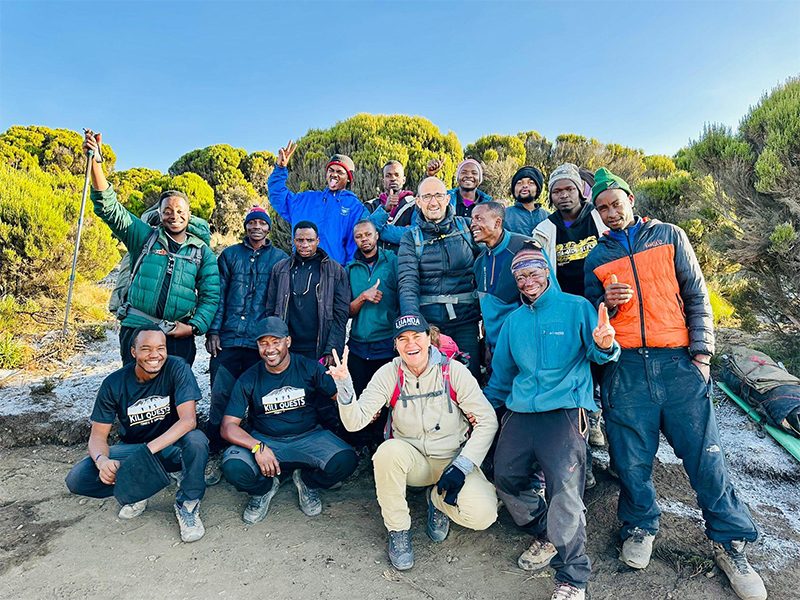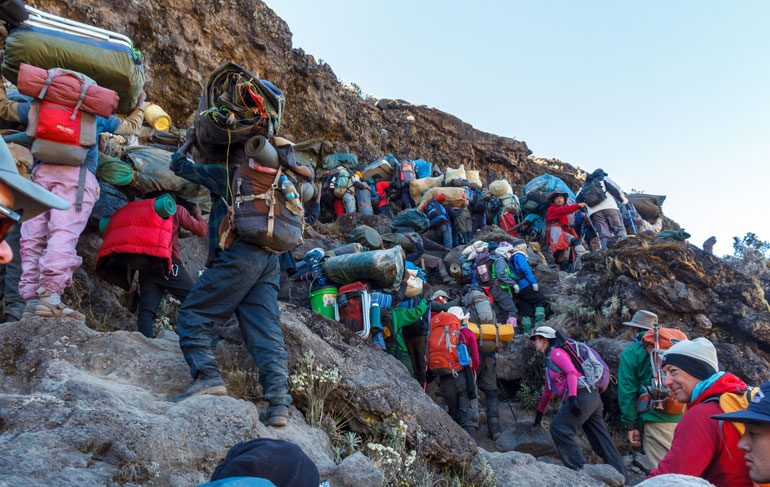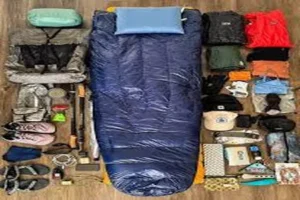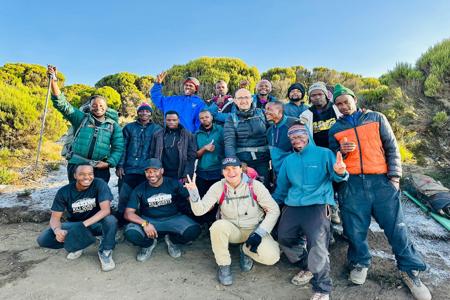Table of Contents
How Many Porters Do You Need for a Kilimanjaro Trek? | Kili Quests
Why Porters Matter

Typical Porter-to-Climber Ratio
- Your duffel bag (max 18 kg)
- Tent, mattress, and camping gear – ~5–7 kg
- Food, water, and cooking equipment – ~5–10 kg
- Staff equipment (fuel, stove, etc.) – ~5–8 kg
- Personal porter gear – ~5–7 kg
- Emergency supplies and extras – ~3–5 kg
Kilimanjaro park rules cap porter loads at 20 kg Only.
How Many Porters for Your Group?
The average Kilimanjaro trek requires 3 to 5 porters per climber, depending on the route,Services and length of the itinerary. Here’s a typical breakdown:
Standard Climber-to-Porter Ratios
- 4 to 5 porters
- 1 guide
- 1 cook
- 8 to 9 porters
- 1–2 guides
- 1 cook
Team size: 10–12 crew members
For 4 Climbers:
- 14 to 17 porters
- 2 guides
- 1–2 cooks
Team size: 17–21 crew members
For 6 Climbers:
- 21 to 25 porters
- 3 guides
- 2 cooks
Team size: 26–30 crew members

The Kili Quests Difference
- We calculate porter needs before every trek to ensure the right number of staff
- Each porter is paid fairly and directly — no delays, no complications
- Every team member receives 3-hot meals, quality Tents gear, and proper rest
- Loads are always distributed responsibly to protect health and morale
Tipping & Respect: Part of the Trek

Trek Responsibly. Trek with Kili Quests.
Related Articles

Food on Kilimanjaro: Meals, Snacks & Trek Nutrition
Table of Contents What Food Can You Expect on Mount Kilimanjaro? A Guide to Your Trek Menu | Kili Quests Climbing Mount Kilimanjaro is

Mount Kilimanjaro Charging Guide:Devices,Power & Solar Tips
Table of Contents How to Charge Your Devices on Mount Kilimanjaro: Power Tips for Trekkers | Kili Quests If you’re heading to Mount Kilimanjaro,

High Altitude Packing List: Kilimanjaro 2025
Table of Contents Kilimanjaro Packing List: Essential Gear for Your Trek | Kili Quests Packing the right gear is one of the most important


